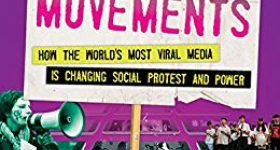One of the most offensive provisions is the so-called "merit-based system" which would favor factors such as an immigrant's job skills, English-speaking ability, and education level in awarding green cards. That means that one's chances of getting a green card could depend on their class background and level of assimilation, meaning that poor uneducated immigrants could potentially be left by the wayside.
Meanwhile, the bill would favor visas for highly skilled workers, which could generate a wave of Asian professionals immigrating to the United States. That aspect of the bill is reminiscent of the 1965 Immigration Act that similarly enabled Filipino doctors, engineers and nurses to enter the country.
Family reunification is one of the most important immigration issues to Asian Americans. There are many Asian Americans and Latinos who have to wait decades to be reunited with loved ones. The Asian Pacific American Legal Center (APALC) of Southern California, an organization that I've volunteered for, worked with local API community organizations to draft the APIA Principles for Immigration Reform [pdf], which states that China, India and the Philippines have some of the longest wait periods. Filipino Americans who sponsor their siblings have to wait an outrageous 23 years before their siblings can get an immigrant visa!
Some proposed legislation would limit family visas while the Clinton-Hagel Amendment purports to keep families together and is supported by Asian American civil rights organizations like the Asian American Justice Center in Washington D.C., (which works with the APALC and Asian Law Caucus in San Francisco). Disproportionately separating the families of certain racial and ethnic minorities for long periods of time runs counter to the popular conception of traditional American values concerned with promoting family and lamenting the disintegration of American families.
The livelihood of undocumented Asian American immigrants is also at stake. The Pew Hispanic Center reports that 1.5 million of the 12 million undocumented immigrants in this country are Asian. The National Korean American Service & Education Consortium (NAKASEC) reports that 1 in 5 Korean Americans is undocumented, including a large percentage that is under 18. A plan that can offer a humane and legitimate path to legalization for undocumented immigrants is a step towards acknowledging the humanity of undocumented immigrants and stopping the raids, racial profiling, detention and deportation of Latino, Cambodian, South Asian, and Filipino immigrants. The passage of the Dream Act would also ensure the ability of undocumented Latino and Asian American youth to attend and afford college.
In trying to keep up with the all the changes being proposed, I've wondered how much influence Asian Americans have had in Congressional deliberation. Given that Asian Americans are woefully underrepresented in the House and Senate, the chances are slim that there have been any Asian Americans at the drawing table at all. Thank goodness for the many Asian American organizations that have continuously advocated to increase the visibility of APIs in the immigration debate that has been framed primarily as a "Latino issue." Asian American organizations like the AAJC and the APALC have also worked to build coalitions with Latino immigrants rights groups advocating for comprehensive reform.
Will the immigration bill be a watershed or a blip? Will it actually be comprehensive or fall short of its potential? We'll have to wait and see what the outcome is. In the meantime we can do what we can to demand that our politicians on Capital Hill prioritize families and the human rights of immigrants.
You can help play a vital role in influencing immigration legislation so that it benefits APIs by calling both your Senators and urging them to support family reunification for APIs by supporting the Clinton-Hagel amendment. You can call the Capitol Switchboard at (202) 224-3121 and ask to be connected to the offices of your Senators.
--
(This post is representative of my viewpoint only and should not be taken as representing the viewpoint of Hyphen, the APALC or any other community organizations).
Carmina is a student at UCLA School of Law and is specializing in Critical Race Studies. She has worked as a legal intern at the Asian Pacific American Legal Center and is currently a legal intern at the NAACP Legal Defense Fund in New York. She has served as the Co-chair of the UCLA Asian Pacific Islander Law Student Association (APILSA) and as a Comments Editor for the Asian Pacific American Law Journal at UCLA.









Comments